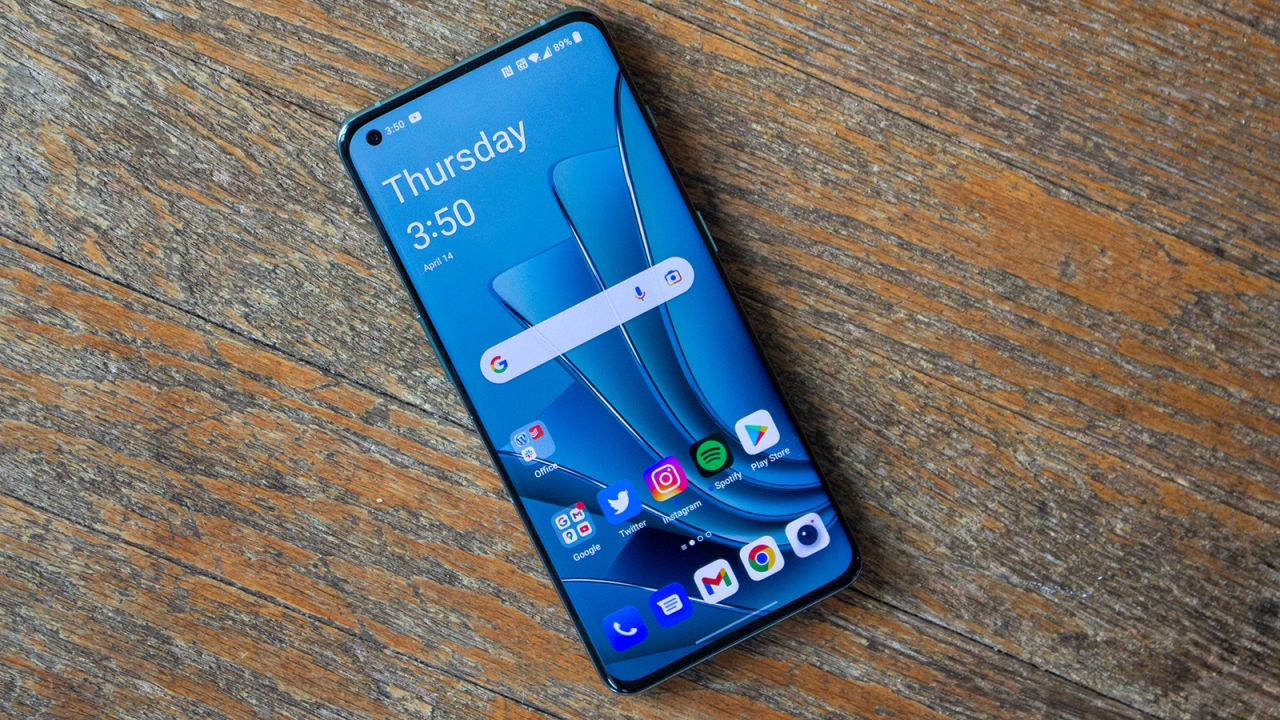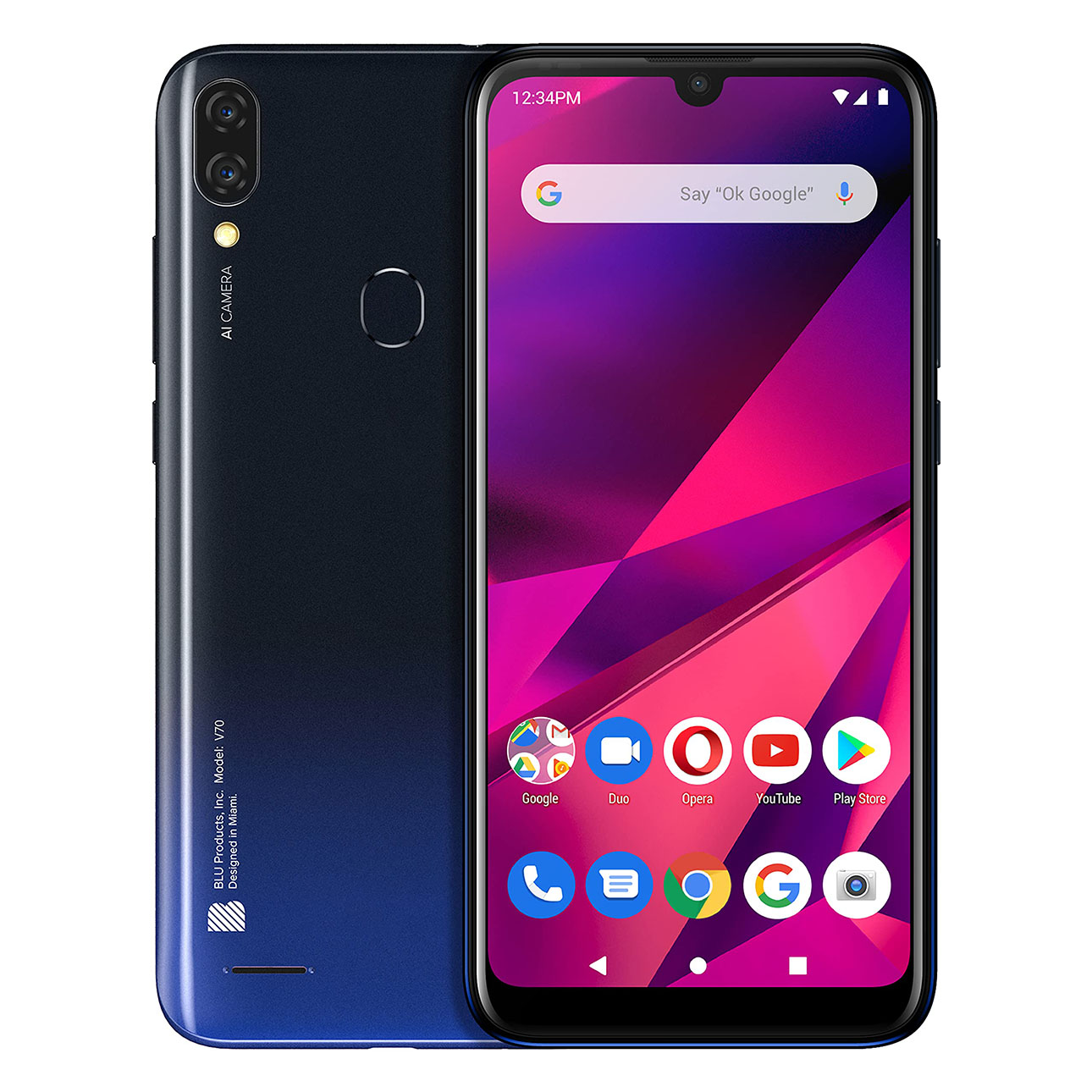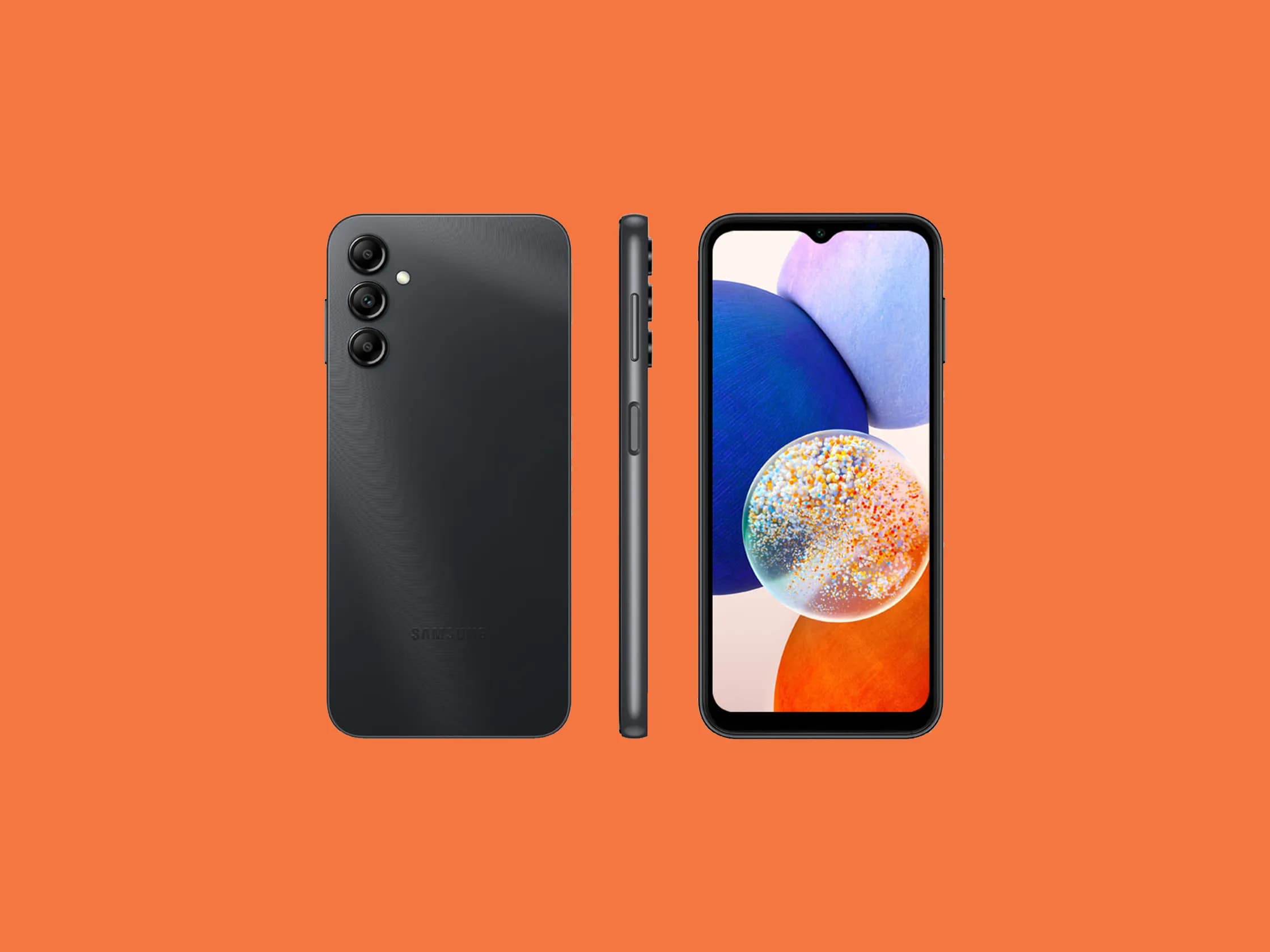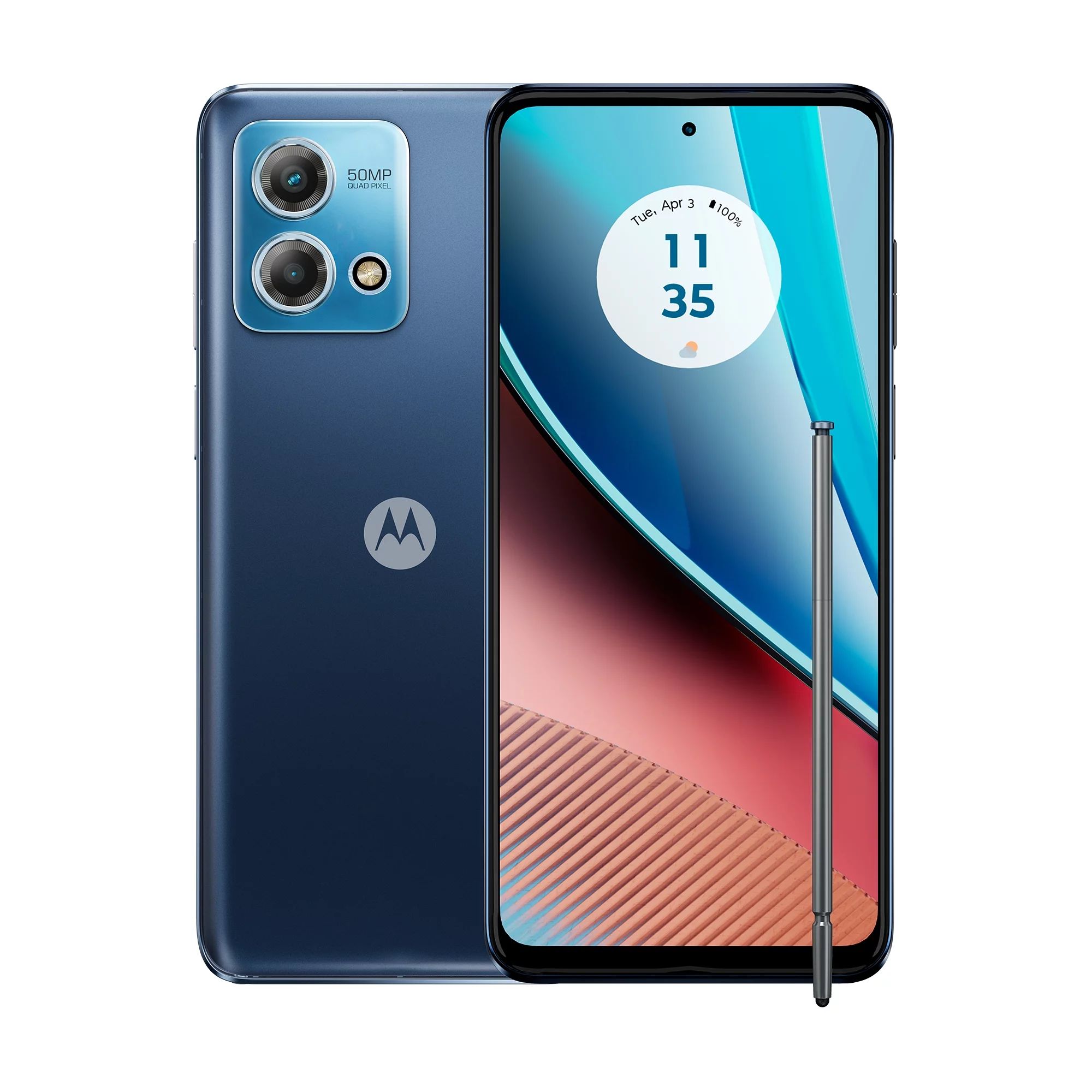What Is An Unlocked GSM Smartphone?
An unlocked GSM smartphone is a mobile device that is not tied to a specific carrier or network. When a smartphone is locked, it can only be used with the service provider from whom it was purchased. However, an unlocked smartphone offers the freedom to choose and switch between different carriers or networks by simply inserting a new SIM card.
GSM stands for Global System for Mobile communications, which is the most widely used mobile phone standard globally. It is used by over 80% of the world’s mobile networks, making GSM the preferred choice for many users.
Unlike locked smartphones that are bound to a specific network, an unlocked GSM smartphone allows you to use SIM cards from different carriers. This flexibility makes it a popular choice for those who frequently travel internationally or prefer the freedom to switch carriers without purchasing a new device.
Furthermore, an unlocked GSM smartphone offers the advantage of being able to use prepaid or pay-as-you-go SIM cards. This means you have the option to choose a plan that suits your needs and budget, without being tied to a long-term contract.
Unlocked GSM smartphones are compatible with GSM networks worldwide. This means that whether you’re traveling domestically or internationally, you can easily switch to a local network by inserting a compatible SIM card. This can save you money on roaming charges and ensure that you have reliable cellular coverage wherever you go.
Overall, an unlocked GSM smartphone provides the flexibility and freedom to choose the carrier and plan that best suits your needs. Whether you want to switch carriers, travel internationally, or take advantage of different pricing options, an unlocked GSM smartphone offers the versatility you need.
What Does GSM Mean?
GSM stands for Global System for Mobile communications, which is a digital mobile network technology that enables voice calls and data transfer for mobile devices. It is the most widely used mobile phone standard globally, with over 80% of the world’s mobile networks utilizing GSM.
GSM works by dividing the available radio spectrum into time slots and frequency bands, allowing multiple users to share the same frequencies simultaneously. This technology is more efficient compared to older analog systems and provides better call quality and network capacity.
One of the key advantages of GSM is its ability to support international roaming. This means that GSM-enabled devices can operate across different countries and networks, allowing users to maintain voice and data connectivity while traveling abroad. This is achieved through the use of Subscriber Identity Modules (SIM) cards, which store the subscriber’s information and allow them to connect to different networks.
GSM offers several benefits over other mobile communication technologies. Firstly, it provides improved voice quality and clarity, thanks to its digital modulation techniques and error correction capabilities. Secondly, GSM offers enhanced security measures, such as authentication and encryption, to protect user data and communications from unauthorized access.
Another advantage of GSM is its support for various value-added services, such as Short Message Service (SMS), Multimedia Messaging Service (MMS), and mobile internet access. These services have revolutionized communication and allowed users to send text messages, share media, and browse the internet from their mobile devices.
Overall, GSM is a widely adopted mobile network standard that provides reliable voice and data connectivity across the globe. Its international compatibility, improved call quality, and support for value-added services have made it the preferred choice for mobile communications. Whether you’re making a phone call, sending a text message, or browsing the internet, GSM technology plays a crucial role in keeping us connected in today’s digital age.
How Does GSM Work?
GSM (Global System for Mobile communications) operates based on a combination of different technologies and protocols to provide mobile communication services. Let’s take a closer look at how GSM works:
1. Frequency Bands and Channels:
GSM uses a range of radio frequencies divided into different frequency bands. Each band is further divided into channels that allow multiple users to communicate simultaneously. The channels are allocated based on time-division multiplexing, where each user is assigned a time slot to transmit and receive data.
2. Mobile Station:
The mobile station, which includes a GSM-enabled device (such as a smartphone), houses a Subscriber Identity Module (SIM) card. The SIM card stores the user’s identity and personal information, including the mobile number, service provider, and authentication keys.
3. Base Transceiver Station (BTS):
The BTS is responsible for transmitting and receiving signals to and from mobile devices. It consists of antennas and transceivers that facilitate wireless communication within its coverage area. Each BTS covers a specific geographical area known as a cell.
4. Base Station Controller (BSC):
The BSC manages multiple BTSs and handles tasks like call setup, handovers between cells, and allocating radio resources to mobile devices. It also controls the transmission power levels of BTSs to optimize network coverage and capacity.
5. Mobile Switching Center (MSC):
The MSC acts as a central hub that connects GSM networks to other networks, such as the Public Switched Telephone Network (PSTN) and the internet. It performs important functions like call routing, switching, and managing mobility for mobile devices moving between different BTSs.
6. Home Location Register (HLR) and Visitor Location Register (VLR):
The HLR stores subscriber information and keeps track of their location and service preferences. The VLR, on the other hand, temporarily stores user information for roaming subscribers within its coverage area.
7. Authentication and Encryption:
GSM incorporates measures to ensure the security of communication. When a mobile device attempts to connect to the network, it undergoes a process of authentication to verify its identity. Encryption techniques are then employed to protect data transmitted over the airwaves, safeguarding it from unauthorized access.
By combining these components, GSM enables mobile devices to access communication services like voice calls, text messaging (SMS), multimedia messaging (MMS), and mobile internet access. The seamless communication between these elements ensures reliable and efficient mobile connectivity for users across GSM networks worldwide.
What Is an Unlocked Smartphone?
An unlocked smartphone is a mobile device that is not tied to a specific carrier or network. It is sold without any restrictions on which SIM card or carrier it can be used with. Unlike locked smartphones, which are typically purchased through carriers and come with a contract, an unlocked smartphone offers flexibility and freedom to choose the carrier or plan that best suits your needs.
When a smartphone is locked, it is programmed to work only with a specific carrier’s SIM card. This means that if you want to switch to a different carrier or travel internationally, you would need to either pay a fee to unlock the device or purchase a new smartphone compatible with the desired carrier or region.
On the other hand, an unlocked smartphone allows you to easily swap out SIM cards from different carriers, enabling you to switch between networks without any restrictions. This is particularly advantageous for frequent travelers, as it allows them to use local SIM cards and avoid expensive international roaming charges.
Unlocked smartphones offer several benefits:
- Flexibility: With an unlocked smartphone, you have the freedom to choose from a wide range of carriers and plans. You are not limited to the offerings of a single carrier, giving you the flexibility to find the best rates, coverage, and features that suit your needs.
- International Use: Unlocked smartphones are compatible with different GSM networks worldwide. This means that when you travel internationally, you can simply purchase a local SIM card and enjoy local rates and services, without having to rely on expensive roaming services.
- No Contracts: Unlocked smartphones do not come with long-term contracts, allowing you to switch carriers or plans whenever you wish. This gives you the freedom to change your network or plan without any financial constraints or penalties.
- Resale Value: Unlocked smartphones tend to have higher resale value compared to locked devices. Since they are not tied to a specific carrier, they are more appealing to potential buyers who prefer the flexibility and freedom that unlocked devices offer.
In summary, an unlocked smartphone provides the versatility to choose your carrier, plan, and SIM card without any restrictions. It offers flexibility, affordability, and the ability to easily switch networks or use local SIM cards when traveling abroad. Whether you want the freedom to switch carriers or the convenience of using local SIM cards when traveling, an unlocked smartphone is the ideal choice.
The Benefits of an Unlocked GSM Smartphone
Choosing an unlocked GSM smartphone comes with a host of advantages that can enhance your mobile experience. Let’s explore some of the key benefits:
- Flexibility: An unlocked GSM smartphone allows you to switch between different carriers and networks effortlessly. You can choose the carrier that offers the best coverage, pricing, and features for your specific needs. This flexibility gives you the power to adapt your mobile service to your preferences, ensuring you get the most value out of your device.
- International Compatibility: Unlocked GSM smartphones are compatible with GSM networks worldwide. Whether you’re traveling for business or leisure, having an unlocked device means you can easily use local SIM cards in different countries. This enables you to take advantage of local network rates and avoid excessive roaming charges, saving you money and keeping you connected wherever you go.
- Cost Savings: With an unlocked GSM smartphone, you have the option to choose from a variety of carriers and plans. This competition among carriers often leads to better pricing and promotional offers, allowing you to find a plan that fits your budget. Additionally, the ability to switch carriers without having to purchase a new phone can save you money in the long run.
- No Contracts: Unlocked GSM smartphones offer the freedom to use your device without being tied down by lengthy contracts. You have the flexibility to change carriers or plans at any time, without facing penalties or restrictions. This gives you more control over your mobile service and allows you to make changes as your needs evolve.
- Device Versatility: Unlocked GSM smartphones are not limited to a single device brand or model. You have the freedom to choose from a wide range of smartphones, ensuring that you find a device that meets your specific requirements in terms of features, specifications, and design.
- Resale Value: In the event that you decide to upgrade or switch to a different device, unlocked GSM smartphones generally have higher resale value compared to locked devices. The broader market appeal of unlocked devices, coupled with their compatibility with multiple networks, makes them more desirable to potential buyers.
These benefits make unlocked GSM smartphones a popular choice for individuals who value flexibility, savings, and control over their mobile experience. Whether you are a frequent traveler, a budget-conscious consumer, or someone who simply wants the freedom to customize their mobile service, an unlocked GSM smartphone offers the versatility and convenience that can enhance your overall mobile usage.
How to Unlock Your GSM Smartphone
If you have a locked GSM smartphone and want to unlock it for use with different carriers, there are several options available to you. Here’s a guide on how to unlock your GSM smartphone:
- Contact Your Current Carrier: The first step is to reach out to your current carrier and inquire about unlocking your smartphone. Most carriers have specific policies and procedures for unlocking devices. You may need to meet certain requirements, such as completing your contract obligations or paying any outstanding device payments. The carrier will provide you with the necessary instructions and codes to unlock your phone.
- Third-Party Unlocking Services: If your current carrier is unable or unwilling to unlock your smartphone, you can consider using third-party unlocking services. These services specialize in unlocking smartphones from various carriers. You would need to provide them with details about your device and carrier, and they will generate an unlock code or software to unlock your phone. Be cautious when using third-party services and ensure that you choose reputable providers to protect your device and personal information.
- Online Unlocking Tools: Some GSM smartphone manufacturers offer online unlocking tools or apps that allow you to unlock your device. Visit the manufacturer’s website or check their support documentation to see if they offer such services. Follow their instructions to unlock your phone.
- Unlocking Through Software: In some cases, it may be possible to unlock your GSM smartphone through software methods. This requires a certain level of technical expertise and may void your warranty. Research online for software tools or methods specific to your device model and proceed with caution if you choose this route.
- IMEI Unlocking: Another method to unlock your GSM smartphone is by using your International Mobile Equipment Identity (IMEI) number. This is a unique identifier for your device that can be used to unlock it. You would need to obtain your IMEI number, which can usually be found in the device settings or by dialing a specific code. Submitting your IMEI number to your carrier or a reputable third-party unlocking service can potentially unlock your device.
It’s important to note that the specific unlock procedures may vary depending on your smartphone model, carrier, and region. It is recommended to consult with your carrier, refer to your device’s documentation, or seek professional assistance if you are unsure or uncomfortable with the unlocking process.
Unlocking your GSM smartphone allows you to use it with different carriers and enjoy the flexibility and freedom of choosing the service provider that best meets your needs. Ensure that you follow the proper steps, obtain the necessary codes or software from trusted sources, and proceed with caution throughout the unlocking process to protect your device and data.
Which Networks Are Compatible with Unlocked GSM Smartphones?
Unlocked GSM smartphones are compatible with a wide range of networks worldwide. Since GSM is a global standard for mobile communications, many carriers and networks operate on GSM technology. Here are the types of networks that are compatible with unlocked GSM smartphones:
- GSM Networks: Unlocked GSM smartphones can be used with any GSM network. These networks use GSM technology for voice calls, text messaging, and data transfer. GSM networks operate using different frequency bands, so it’s important to ensure that your unlocked device supports the specific frequency bands used by the network you want to use.
- 4G/LTE Networks: Many GSM networks have upgraded to 4G/LTE (Long-Term Evolution) technology to provide faster data speeds and better network performance. Unlocked GSM smartphones that support 4G/LTE can be used on these networks to enjoy high-speed mobile internet browsing, streaming, and other data-intensive activities.
- Virtual Network Operators (MVNOs): MVNOs are mobile network operators that do not have their own physical network infrastructure. Instead, they piggyback on existing GSM networks and provide their services using those networks. Unlocked GSM smartphones can be used with MVNOs as long as they are compatible with the host network used by the MVNO.
- International Networks: Unlocked GSM smartphones are particularly useful for international travelers. They can be used with local GSM networks in different countries by simply inserting a compatible local SIM card. This allows you to enjoy local network rates and avoid costly roaming charges.
- Prepaid Networks: Prepaid or pay-as-you-go networks are popular options for those who want flexibility and control over their mobile usage. Unlocked GSM smartphones are compatible with prepaid networks, allowing you to choose a plan that fits your needs and budget without being tied to a contract.
It’s important to note that the specific compatibility of your unlocked GSM smartphone depends on the device’s supported frequency bands and the network’s coverage in your area. Before purchasing or switching to a new network, it’s recommended to check the device’s specifications and ensure that the network supports the compatible frequency bands.
Overall, unlocked GSM smartphones offer broad compatibility with GSM networks, 4G/LTE networks, MVNOs, international networks, and prepaid networks. This versatility allows you to choose the network and plan that best suits your needs, whether it’s for local use or international travel.
Where Can I Buy Unlocked GSM Smartphones?
If you’re in the market for an unlocked GSM smartphone, there are several places where you can purchase them, both online and offline. Here are some popular options:
- Online Retailers: Websites such as Amazon, eBay, and Best Buy offer a wide selection of unlocked GSM smartphones. You can easily browse through different brands, models, and price ranges, read customer reviews, and compare specifications to find the device that best meets your needs. Online retailers often provide competitive pricing and convenient delivery options.
- Manufacturer Websites: Many smartphone manufacturers, such as Apple, Samsung, Google, and OnePlus, sell unlocked GSM smartphones directly through their official websites. Purchasing from the manufacturer ensures that you are getting an authentic device with warranty coverage. Manufacturers often offer financing options and trade-in programs, allowing you to upgrade your device more affordably.
- Electronics Stores: Physical electronics stores, like Best Buy, Walmart, and Target, often carry unlocked GSM smartphones in their inventory. You can visit these stores to see and test the devices in person before making a purchase. Retail staff may also be able to provide guidance and answer any questions you may have about the different models available.
- Specialty Retailers: There are retailers that specialize in selling unlocked GSM smartphones and other mobile devices. These stores often have a wider selection and knowledgeable staff who can provide expert advice. Examples include companies like B&H Photo Video and Newegg.
- Second-Hand Markets: If you’re looking for a more budget-friendly option, you can explore second-hand markets, such as Craigslist, Swappa, or local classifieds. These platforms allow individuals to sell their used unlocked GSM smartphones at lower prices. Ensure that you thoroughly research the device’s condition and verify its compatibility with your intended network before making a purchase.
When buying an unlocked GSM smartphone, it’s important to consider factors such as the device’s specifications, features, warranty coverage, return policies, and customer support. It’s also worth checking if the device is compatible with the network you intend to use.
Keep in mind that prices and availability may vary depending on your location and the specific device you are interested in. Take the time to compare prices, read reviews, and consider your budget and needs to make an informed decision.
Regardless of where you choose to shop, always ensure that you are purchasing from reputable sellers to avoid counterfeit or stolen devices. By exercising due diligence, you can find the right unlocked GSM smartphone that suits your preferences and allows you to enjoy the freedom and flexibility of choosing your desired carrier and plan.
How to Choose the Right Unlocked GSM Smartphone for You
With numerous unlocked GSM smartphones available in the market, it can be challenging to choose the one that best suits your needs. Here are some key factors to consider when selecting the right unlocked GSM smartphone:
- Budget: Determine your budget range for the smartphone purchase. This will help narrow down your options and ensure that you find a device that fits within your financial means.
- Operating System: Decide whether you prefer iOS (Apple), Android (Google), or another operating system based on your familiarity, app preferences, and desired features.
- Screen Size and Display: Consider the screen size and display quality that aligns with your usage preferences, such as watching videos, playing games, or reading text.
- Camera Quality: Evaluate the camera specifications and features, such as resolution, low-light performance, and advanced camera capabilities, if photography is a priority for you.
- Processing Power: Look for a smartphone with a powerful processor and ample RAM to ensure smooth multitasking, gaming, and overall performance.
- Battery Life: Consider the device’s battery capacity and reviews regarding battery life. This is particularly important if you rely heavily on your smartphone throughout the day.
- Storage Capacity: Assess your storage needs for apps, photos, videos, and documents. Choose a device with sufficient internal storage or expandable storage options, such as a microSD card slot.
- Connectivity Options: Check for the presence of features like Bluetooth, NFC, Wi-Fi capabilities, and ensure that the device supports the necessary cellular bands for your preferred network.
- Design and Build: Consider the overall design, build quality, and ergonomics of the smartphone. Look for features like water and dust resistance, premium materials, and a design that aligns with your aesthetic preferences.
- Brand Reputation and Support: Research the reputation of the smartphone brand and consider factors like customer support, software updates, and warranty coverage. This ensures a positive ownership experience and long-term support for your device.
- Reviews and Recommendations: Read expert and user reviews to gather insights into the device’s performance, user experience, durability, and any potential issues that may arise.
By considering these factors, you can make an informed decision and choose the right unlocked GSM smartphone that caters to your specific needs and preferences. It’s essential to strike a balance between your desired features, budget, and long-term usability to ensure that the smartphone continues to meet your requirements for an extended period.
Lastly, don’t rush the decision-making process. Take your time to research, compare different models, and consider your usage patterns to find the perfect unlocked GSM smartphone that enhances your mobile experience and provides the features you value most.
Conclusion
Unlocked GSM smartphones offer a multitude of benefits, providing users with flexibility, freedom, and versatility in their mobile experience. These devices are not tied to a specific carrier or network, allowing users to choose and switch between different carriers or networks by simply inserting a new SIM card. This makes unlocked GSM smartphones particularly beneficial for frequent travelers, those who prefer different carriers for various reasons, and individuals seeking cost-saving options.
GSM technology is the most widely used mobile phone standard globally, ensuring compatibility of unlocked GSM smartphones with a wide range of networks. Whether you’re using GSM networks, 4G/LTE networks, prepaid networks, or exploring international options, an unlocked GSM smartphone allows you to take advantage of various services and plans.
When selecting an unlocked GSM smartphone, it is crucial to consider factors such as budget, operating system, screen size, camera quality, processing power, battery life, storage capacity, connectivity options, design, brand reputation, and user reviews. By carefully assessing these factors, you can find the perfect device that aligns with your preferences and meets your specific needs.
Whether you opt to purchase an unlocked GSM smartphone from online retailers, manufacturer websites, electronics stores, specialty retailers, or even the second-hand market, ensure that you’re dealing with reputable sellers to guarantee an authentic and reliable device.
In conclusion, unlocked GSM smartphones offer the flexibility, compatibility, and customization options that many users desire in their mobile devices. By choosing an unlocked GSM smartphone, you can enjoy the freedom to choose your preferred carrier, explore international networks, avoid expensive roaming charges, and take advantage of various network options. Take your time to research, compare, and evaluate your options to find the perfect unlocked GSM smartphone that enhances your mobile experience and meets all your communication needs.

























